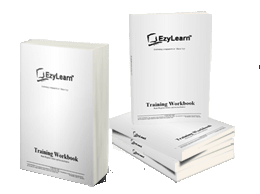 Google Adwords When Customers Are Looking For You
Google Adwords When Customers Are Looking For You
Google is currently the dominant search engine so when people are looking for something they use Google to find it. To be in Google search results is a major goal for the online marketing department of every business today and while many companies use Content Marketing to help them get there, it is a strategy which takes some time to achieve. Companies that can’t get to page 1 of Google search results using a content marketing strategy can get to page 1 by paying for Google Adwords Ads.
The Best Customers Are Searching For You
Some online marketers believe you are better off waiting for your content marketing strategy to work but others suggest you promote your business using Google Adwords from the get-go. Whichever you believe the truth is that you can get in front of your potential customers immediately and that might be important to:
- Test the market want for something new you are selling
- Test the structure and flow of your website marketing funnel
- Learn how to fine tune your website traffic for the market
- Just start making sales and earning money
How Can You Target Your Advertising
Google is great at discovery and your job as an advertiser is to find out the keywords that people use to find the products and services offered by your business, display ads that make visitors want to click, and then design great landing pages that answer their questions and enable them to get you know your business better and offer them what they started out searching for.
You can make sure your ads show up only in certain areas (states, countries, sometimes even just selected cities), on selected times of the day/week and (depending on how much you are willing to pay) where the ad appears in Google’s search results.
You can explore more details targeting about potential customers using a variety of different tools made available by Google, but it doesn’t quite have the demographic targeting available like those offered by Facebook Advertising.
What To Write In Your Google Adwords Ads
The art of writing great Ad copy has been around since the halcyon days of advertising executives in Mad Men. There is an art and technique in getting people interested in your ad and give them a compelling reason to click and begin on the journey of getting to know you and your business.
Google Ads Training Course (Level 2) – coming soon..
Ads Budget
Google Ads works on an auction basis where businesses bid for the top or preferred position for selected Keywords and phrases and in preferred locations. Most of these ads are charged at a “Cost per Click” or Price Per Click and businesses get to choose their daily ad budget.
Does this mean I need a lot of money to advertise?
No. We’ll teach you how to do Keywords research so you get more value for your advertising dollar. By using Keywords that specifically match what your prospect is looking for, you’ll attract the right type of clients without blowing your budget.
You’ll explore campaigns based around niche keywords that make it cheaper to target specific services while also bringing traffic to your website.
Case Study: The Career Academy website that retails bookkeeping and office admin courses
In this module you’ll learn about the sales stages and sale value based on a real-life business scenario. This exercise will teach you how much you can afford to pay for a click and how much a sale is worth.
Keyword Research
Keywords and Key Phrases are the cornerstone of the English language. As early as primary school we learn about using words to search for information as well as write about it.
Sometimes you’ll do a Google search for something only to realise that you need to use better keywords to get better results. You’ll learn how to identify the best keywords to attract website visitor traffic to your business website.
Market Research of your competitors
Understanding the keywords that buyers use to find your business will make a big difference to what you put into your Google Ads as well as the words on your landing pages.
Google Ads Keyword Planner is one tool that you’ll learn how to use but you’ll also do some competitor market research to see which keywords and offers they put into their ads and landing pages.
Whether you want to learn from your competitors or not the people who contact you will probably have already seen and explored your competitors and what they offer.
Keyword Topics Covered in Google Ads Training Course (Level 2):
- What are Keywords and how do they influence Google search results?
- Commonly used Keywords
- Branded Keywords
- Negative Keywords
- Keyword ideas. Google can recommend keywords that will send traffic to your website.
- Competitor Keywords. Find out which keywords are working successfully for other businesses in your field.
- Paid and organic headings
- Paid and organic descriptions
- Call outs, links and features. These are aspects of a Google Ad which appear beneath the ad and give visitors an option to choose a specific link if they are interested in it.
- New Keywords. Find out which words attract the type of clients that you are looking for.
- Branded or Non-branded Keywords. This information gives you insight into what is happening in the market and with your competitors.
- Statistics and Keyword Matching. Narrow or widen your target audience using exact matching, phrase matching and broad matching techniques.
- The Google Ads Keyword Planner is a free tool that helps you to research Keywords related to your business. You’ll learn how to find estimates of searches and the cost to target them.
Landing Pages & Ad Scores
Your landing page is the first thing your prospective client will see when they click on your ad. Google penalises ads with bad landing pages that are not relevant and your Google Ads can cost you thousands of dollars per month more than they should.
The Website Landing Pages & Call-To-Action Training Course teach you about what to put on a landing page and why and the Google Ads Training Course (Level 2) will go deeper into the financial value of using these different kind of landing pages or whether to use them at all and focus on purpose built landing pages.
You’ll learn about the different types of landing pages that are most likely to compel visitors to enter their details on a lead capture form:
- A normal page such as a website Home page.
- A course category page to showcase your available products and services.
- A blog post to provide valuable tips and expert advice, and encourage visitors to subscribe.
- A dedicated landing page that is designed for a specific purpose, such as entering a competition or downloading a free training manual.
- A competitor comparison niche landing page to divert traffic away from competitor websites.
Campaigns and Adsets
Campaigns help you to organise categories of products or services that you offer. Having separate campaigns for each type of work means that you can test the effectiveness of different types of ads on audiences with different needs.
In this module you’ll learn how to:
- Create ad groups that share similar target audiences
- Submit bids for popular Keywords
- Define your target audience
- Choose your ad placements in commonly used Google apps
Google Ads
Learn which ad layouts, Keywords and Call-To-Action (CTA) phrases work best to target your potential clients.
Case Study: Bookkeeping Service in Melbourne South East
In this module you’ll study the case of a real-life Bookkeeping, Accounting and Payroll Manager who used Google Ads to attract clients to his newly launched Xero Payroll Training and Tutoring services.
Topics covered:
- How to write an ad – headings and descriptions
- Adding images to your Google Ads
- Creating a strong Call-To-Action (CTA)
- Building a landing page
- Understand the difference between Impressions, Clicks and Leads
[gravityform id=”1″ title=”true”]







